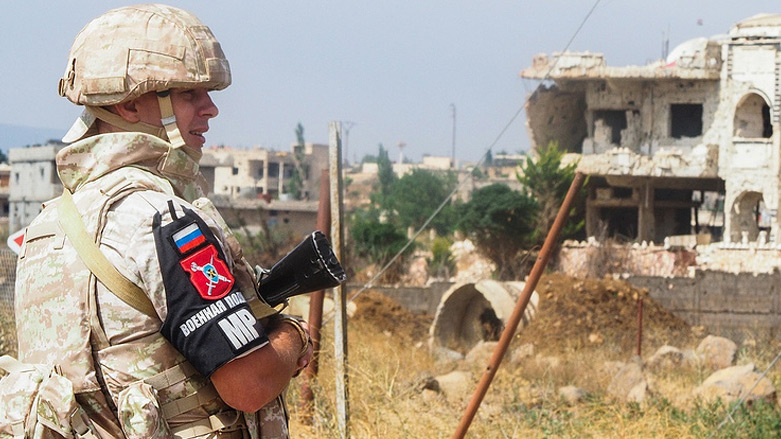Jihadi group claims rare attack against Russian base in northeast Syria

ERBIL (Kurdistan 24) – One of the hodgepodge of jihadi groups in Syria’s Idlib province, the last area of the country still under rebel control, Hurras al-Din (Guardians of the Religion) on Friday claimed a rare attack against a Russian base.
The Russian base is in Raqqa province in northeastern Syria, which is controlled by the Syrian Democratic Forces (SDF.)
According to local media reports, five Hurras al-Din fighters were killed during the attack and two Russians were injured. So far, the Russian Defense Ministry has not confirmed the assault.
In the florid language typical of such groups, Hurras al-Din issued a statement later on Friday, asserting, “By the grant of success from God (Almighty and Exalted is He), and despite the tragedies the field is going through, one of the squadrons of your brothers in the Hurras al-Din organization managed to raid a den of the occupying Russian forces in Tal al-Saman affiliated with Raqqa province.”
The UK-based Syrian Observatory for Human Rights (SOHR) confirmed that there had been injuries among Russian forces at the Tal al-Saman base.
The local pro-Kurdish news agency Hawar (ANHA) also reported on the assault and provided more detail. It said that a car bomb and five suicide bombers had attacked the base in Tal al-Saman, twenty kilometers from Ain Issa, where there is regular fighting between the SDF and Turkish-backed forces.
“Russian forces foiled the infiltration operation inside the base and killed all the suicide bombers, after the car bomb exploded at the entrance to the base,” the Hawar report stated.
Last week Russia called on Turkish-backed forces and the SDF to cease their fighting near Ain Issa, as Russia reinforced its positions near the town.
Read More: Russia calls for de-escalation in Ain Issa ahead of meeting with Turkey
Aymenn Jawad al-Tamimi, who is originally from Iraq and whose work has focused on militant groups, suggested one explanation of the attack on the Russian base to Kurdistan 24: Hurras al-Din might be trying to recover its reputation among Syrians by resuming dramatic activities.
The group's operations came to a near complete halt following clashes with a rival jihadi group, Hay'at Tahrir al-Sham (Committee for the Liberation of Syria), in Idlib province last summer, when Hurras al-Din and its allies were decisively defeated.
Yet an attack on a Russian base is a major operation, requiring some resources, and it is likely bring about strong retaliation. So how could a much-weakened group carry out such an assault?
Possibly, Hurras al-Din was acting at the behest of and with the support of a stronger power, such as a regional state. Turkey and the Gulf Arabs all support various extremist groups in Idlib.
The frontlines in northwest Syria are largely frozen due to ceasefire arrangements between Russia and Turkey. However, the ceasefire regularly breaks down, when Syria and its allies decide to resume their attacks.
The attack on Friday “was far removed from the group's main presence in Idlib province and a place (northeast Syria) where insurgent attacks are normally associated with the Islamic State. Indeed, to my knowledge, this is the first operation Hurras al-Din has claimed outside of northwest Syria,” al-Tamimi told Kurdistan 24.
Indeed, earlier this week, on Tuesday, the Russian military's Reconciliation Center in Syria said three of its military police had been wounded in Idlib by an attack from an unknown group.
Moscow’s intervention in Syria began in the fall of 2015, with the aim of supporting the Assad regime, a long-time ally of Russia, which maintains important military facilities in the country.
As a result of Russia’s intervention, along with Iran’s, the regime has been able to hold on power and to withstand attacks by Syrian rebel groups backed by Turkey and the Gulf Arab countries.
Editing by Laurie Mylroie
